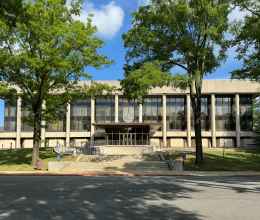
Racism, Algorithms, and the Fight for Redemption


For years, people sentenced as children to life in prison with the possibility of parole, and their families, have tried to get Maryland to live up to the promise of second chances that a parole-eligible sentence is intended to provide. However, many barriers exist that stop this from happening. Many criminal justice stakeholders have turned to technology to help make parole decisions through “risk assessment tools.” Also labeled artificial intelligence, these tools have been touted as carrying with them the potential to save a broken system. However, these tools may exacerbate the same problems they are supposed to help solve. They rely on flawed criminal justice data that is not controlled for the institutional vestiges of slavery, de jure and de facto segregation, racial discrimination, and biased policing.
In this episode we talk to Earl Young, who was sentenced to life when he was sixteen; James Foulds, assistant professor in the Department of Information Systems at UMBC; and Sonia Kumar, senior staff attorney at the ACLU of Maryland. What are the barriers to people getting a real opportunity to earn a second chance? What can you do to support meaningful reforms to parole systems, like the deeply flawed system in Maryland?
Produced and Hosted by: Amber Taylor, digital communications strategist, ACLU of Maryland
This podcast was recorded on Piscataway land.
Thinking Freely, ACLU of Maryland's podcast, will inform Marylanders about what's happening politically – from the courts to the streets – so they can get involved and realize a more equitable Maryland for all.
SUBSCRIBE ON:
Apple Podcast | Spotify | SoundCloud | Stitcher | Listen Notes | RadioPublic | Pandora
Related content

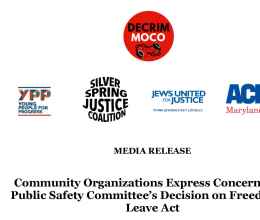
Community Organizations Express Concern Over Public Safety...
September 16, 2024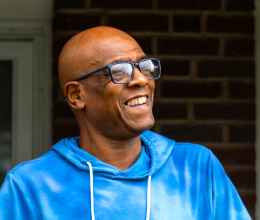
Wayne Brewton-Bey: Supporting Survivors (Life After A Second Chance...
September 4, 2024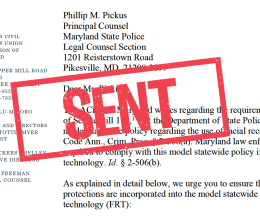
Facial Recognition “Lineups” Not Enough for Probable Cause, Says...
August 22, 2024
Gordon Pack: Restorative Justice (Life After A Second Chance Series...
July 23, 2024
Meet Our New Board President, Corey Stottlemyer
June 25, 2024
Welcome our new Board President, Corey Stottlemyer
June 25, 2024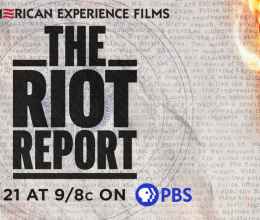
Reading Freely: A Riot vs. A Rebellion: A Telling of The Riot...
June 17, 2024